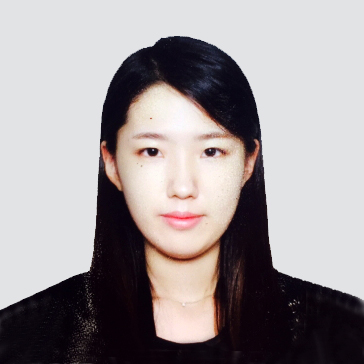
Huiran Yeom
PhD Candidate
Department of Electrical & Computer Engineering
Seoul National University
Huiran Yeom was born in Cheorwon, Republic of Korea, in 1991. She received her BE degree in Electronics and Electrical engineering from Ewha Womans University, Republic of Korea, in 2014, and in same year attended the Department of Electrical Engineering of Seoul National University (NUS) as a graduate student. She is now a PhD candidate in Biophotonics & Nano Engineering Laboratory, and her current research interest is in bio-electrical engineering for personalized medicine including biochip, point of care system, next generation sequencing, and synthetic biology. She is the author of more than 6 technical papers in conference including 8th International Conference on Micro-technologies in Medicine and Biology (MMB), The Korean BioChip Society (KBCS) etc. She has more than 3 patents of Method and apparatus for obtaining high purity nucleotides, KR20170059558, 2017.05.12, Method for identifying errors occurred by massively parallel sequencing and an apparatus for the same, KR20170048413A, 2017.04.14.
Ultra-sensitive detection of rare mutation by next generation sequencing (NGS) error validation
The advent of next generation sequencing has led to revolutionary impact on biological research and clinical field. Accordingly, with high throughput and low cost, it is possible to identify heterogeneous mutation and monitoring its change in cancer. However, NGS sequencing is hard to assess cancer which have rare mutation, <1% frequency, since its background error is too high. Until now, in order to remove its background noise, most people depend on deep sequencing with barcoding strategy, although barcoding method have limitation to capture ultra rare mutation and occur bias, and deep sequencing require high cost. To overcome this problem, we present novel approach that validate NGS sequencing error and can determine under 0.01% error rate. Since optical sensor that identify fluorescence signal of sequencing probe make base calling error, we approached to validation method that extract DNA molecule and determine whether it has real variant or sequencing error by amplifying the molecule and re-sequencing. In this experiment, by using DNA laserbased extraction, the nucleotide molecules that have 0.01% variant rate were physically separated from NGS plate, then verified by Illumina sequencing platform.
Please click here to view the abstract with full list of authors and reference.